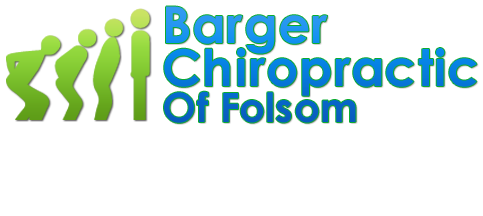Functional Diagnostic Medicine (FDM) In Folsom
Barger Chiropractic of Folsom recently added Functional Diagnostic Medicine (FDM) to my practice as an additional advantage to the continued well-being of my patients. I have been looking for a way to examine the physiological, biochemical and metabolic abnormalities that underlie the symptoms I regularly see in my patients. FDM represents, in my view, an important change in the way health care will be delivered in the 21st century. In a perfect world, everyone would go through the FDM process when they turn 50 to establish a baseline while they are healthy. That would put them significantly ahead of the game when health problems begin to develop as they grow older. True preventive measures can be taken to minimize the effects of aging.
What is Functional Diagnostic Medicine?
Have you ever wondered why two people with exactly the same medical problem respond differently to the same treatment? I take vitamin C and my sore throat goes away; you may try the same thing and nothing changes. One man takes Hytrin for his enlarged prostate and it responds as expected. Hytrin fails utterly for another man, but Avodart does the trick. A third might try an alternative treatment protocol with varying degrees of success after all of the major drugs have failed. Still others may try everything and find that none of the recognized remedies is effective. Whether you favor a traditional Western medical approach or prefer to rely on alternative medicine, the same treatments work for some patients but not others, and some patients find no solutions. Why is this the case?
The answer is simple: each of us is different. We each have different personalities, different likes and dislikes, etc. and each of us has a different body chemistry and that makes all the difference when we become ill. We both may have exactly the same symptoms of chronic heartburn, but the underlying causes of my heartburn may be completely different from yours. So, it is really not so surprising that different forms of treatment may be required for each of us, not just to relieve our symptoms, which often come back, but to deal with the root causes.
Traditional Western medicine relies almost completely on drugs and invasive procedures like surgery to treat a disease. Alternative medicine substitutes natural substances as a preferred form of treatment, but both take a disease specific approach that focuses on symptom suppression rather than exploring the underlying biochemical imbalances that may have led to the disease in the first place. The objective of these approaches is to diagnose the disease the individual has and then prescribe the medication or other treatment regimen that has demonstrated the highest probability of helping. It is a sophisticated process of trial and error.
FDM represents a new concept in health-care, one that takes a patient-specific approach. People go through life experiencing mental and physical stressors which can potentially compromise the ability of the body’s immune system to respond. A major health crisis can occur – cancer, heart attack, stroke, diabetes. FDM recognizes our biological individuality, that different people have different causes for the same health conditions. It relies on objective, comprehensive testing procedures that examine the root causes of chronic symptoms that eventually lead to serious illness. It can, in some cases, identify pre-clinical signs of disease before there are any symptoms and we can implement a patient-specific treatment regimen that has the potential to halt and reverse the progression, and help patients restore normal body function. FDM looks at what is specifically unique to the patient rather than what is generally true about a disease.
What does the FDM process involve?
The first step in the process is to ensure that all of the information about your health history and your current illness has been obtained. Documentation includes:
Your medical records;
* A comprehensive health questionnaire;
* A diet and lifestyle diary;
* A toxicity questionnaire;
* A nutritional assessment questionnaire; and
* A health goals form.
When all of the documentation is in place, the second step is a consultation appointment which will involve a review of the findings in your medical records and other submitted information, preliminary observations regarding nutrition, and recommendations for labs that will help to pinpoint the physiological, biochemical and metabolic abnormalities that may be responsible for your illness.
When all of the test results are in, the next step is an appointment to review the clinical findings and discuss a treatment plan which focuses on:
* Dietary changes that may be necessary.
* Hydration (water consumption).
* Adequate digestion.
* Proper elimination.
* Biotransformation (liver detoxification & stress,sex and thyroid hormone balancing).
* Basic nutritional support (vitamins and minerals).
* Rest and relaxation.
* Stress management
* Movement and exercise.
As treatment progresses, follow-up appointments are scheduled to ensure that you are moving forward and are on track with your health goals. At some point a full re-evaluation takes place to assess, from a clinical perspective, how far you have come. If you have met the goals you established at the onset of the process, you can move into a maintenance program. If you still have a ways to go with your treatment, the treatment plan can be fine tuned to ensure that you continue to make progress.
If you are interested in pursuing this comprehensive, proactive wellness based treatment program, just give Dr. Barger a call to schedule an initial evaluation. 916-984-9999





